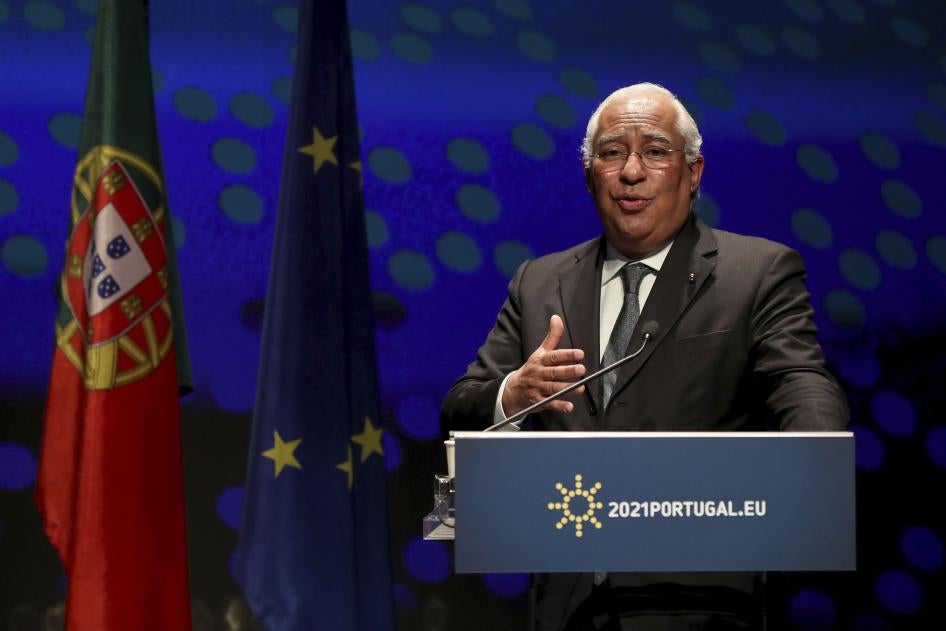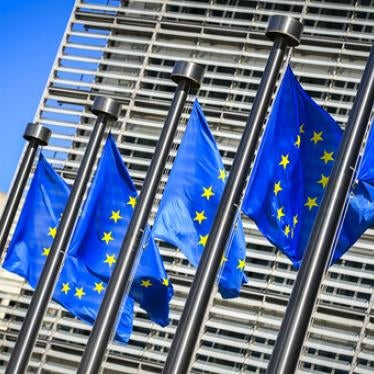Germany's six-month EU presidency ended on a low note for rule of law in the bloc. Can we hope that Portugal's half year at the helm will be any better?
Portugal just took over rotating presidency of the EU, and it’s encouraging to see that the government has listed, “defending and consolidating the rule of law and democracy”, in the EU as one of its top priorities. Prime Minister António Costa has also rightly stressed that the EU should be “a union of values.”
So far, so good, but it will take more than good intentions to stop the severe erosion of democratic safeguards and rule of law within the EU.
The situation is critical. In Hungary, Viktor Orbán’s government has undermined courts, curbed media freedom and pluralism, criminalized legitimate civil society activities, taken over universities, and promoted homophobia and misogyny. Amid a global pandemic, it has used unlimited emergency powers to issue hundreds of decrees, including several completely unrelated to public health, like limiting free speech. Contrary to its obligations as an EU member, Hungary, under this government, blatantly refuses to implement binding rulings of the EU Court of Justice ordering it to fix its flawed asylum law and stop obstructing international funding for civil society groups.
In Poland, flawed reforms seriously compromised every layer of the country’s judiciary, to the point that some EU states refrain from extraditing suspects to Poland. The Polish authorities use disciplinary proceedings to silence critical judges or those carrying out EU law when it runs counter to government policies. In October, the Constitutional Tribunal – a court whose independence and legitimacy have been compromised – did the government’s bidding when it upheld a virtual ban on access to safe abortion, undermining women’s basic rights and triggering the largest protests in the country since 1989. LGBT citizens face harassment and arrests on spurious charges.
These issues infamously came to a head towards the end of last year, when Hungarian and Polish leaders threatened to veto the EU budget and COVID recovery plan if access to EU funds were in any way tied to respect for rule of law. Although these autocratic leaders failed to fully achieve their goal, their agenda speaks volumes about their lack of commitment to EU values and to the rights of their own citizens.
Germany’s EU presidency turned out to be a tremendous disappointment in the rule-of-law struggle, gradually watering down the rule-of-law conditionality tool whenever it had control of the process, resulting in the risk now of seriously delaying its implementation, and keeping scrutiny under Article 7 – the EU treaty procedure tackling states in breach of EU values – at a standstill.
There are two things the new Portuguese Presidency needs to do to uphold rule of law in the EU and put words into action.
First, it should revive EU scrutiny under Article 7. Triggering Article 7 on Poland in 2017 and Hungary in 2018 was the right thing to do. But since then, there has been little progress, largely because other member states lacked courage to make the best use of it.
There is a lot that could still be achieved under this procedure, starting with the regular convening of hearings to hold both governments to account, the adoption of rule-of-law recommendations, and a move towards a vote to determine that there is a “clear risk of serious breach” of EU values. Portugal should make sure that Hungary and Poland’s continued disregard of key EU Court of Justice decisions is also brought into the spotlight.
Second, Portugal should do its best to activate the brand new EU mechanism aimed at conditioning access to EU funds a government’s respect for the rule of law. Last-minute compromises agreed in December could delay enforcement until the EU Court confirms the legality of the mechanism, and if that process is protracted, it could give Hungarian Prime Minister Viktor Orbán and Poland’s ruling party leader and Deputy Prime Minister Jarosław Kaczyński time to consolidate their power grabs further. If, as they promised to do, Poland and Hungary challenge the new rule of law tool at the EU Court, the Portuguese Presidency should support a request to use an expedited procedure and limit the damage on the effectiveness of the whole mechanism.
The urgency is great because European democracy itself is at stake. Portugal’s own history has made clear: EU membership and attachment to democratic principles should go hand in hand. This is the kind of legacy the Portuguese Presidency should be proud to promote.









